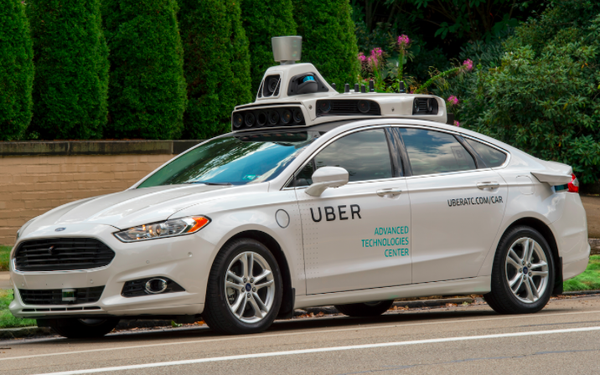UberX took a huge step into the future of transportation on Wednesday with the public launch of its first self-driving fleet at its Advanced Technologies Center in Pittsburgh.
After a year and a half of a preparations, the company announced that pilot fleet is officially on the road in the Steel City.
"We’re inviting our most loyal Pittsburgh customers to experience the future first," the company said in a statement. "If a Self-Driving Uber is available, we’ll send it along with a safety driver up front to make sure the ride goes smoothly. Otherwise it’s uberX as usual."
Uber touts its self-driving cars as an ultimate fix to the challenges of roadway safety and urban design. Roughly 1.3 million people are killed each year in traffic accidents, a number Uber believes can be drastically reduced with the introduction of self-driving cars. These vehicles could also free up the 20 percent of space currently used in cities to park more than a billion cars worldwide.
There's also the matter of cutting down on roadway congestion, a major time waster and daily source of renewable rage.
- RELATED ARTICLES
- Pennsylvania creates task force for autonomous vehicle development
- Uber plans Pennsylvania test track for self-driving vehicles
- Tesla Model X crashes in Autopilot mode on Pennsylvania Turnpike
"We know that many drivers will have questions about this technology," said Anthony Levandowski, Vice President of Self-Driving Technology at Uber. "It’s still very early: Self-Driving Ubers have a safety driver in the front seat because they require human intervention in many conditions, including bad weather. Even when these technology issues get fixed, we believe ridesharing will be a mix, with services provided by both drivers and Self-Driving Ubers."
To date, billions of dollars have been invested by more than two dozen companies in a race to achieve the standard of self-driving vehicle performance. With 10 million self-driving cars expected to reach the road by 2020, it's no longer a technology of the distant future.
Public confidence in self-driving cars and autopilot features recently took a hit after a string of accidents involving Tesla's Model S and X cars. The company announced a "major enhancement" this week, however, with the improvement of its technology through expanded radar capabilities.
Uber recently acquired Otto, a developer of self-driving trucks, to accelerate progress on the transformation of long-haul transit. The company appears to be taking a step-by-step process to ensure the safety of its technology and evaluate how best to deploy it alongside its human-driven fleet.
"Our ATC efforts combined with our recent Otto acquisition mean we have one of the strongest self-driving engineering groups in the world," Levandowski said, "as well as the experience that comes from running a ridesharing and delivery network in hundreds of cities."


